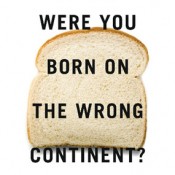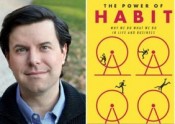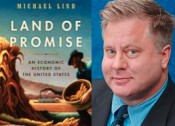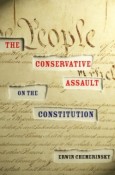STEVEN GREENHOUSE, Can Unions Make a Comeback? – Beaten Down Worked Up: The Past Present and Future of American Labor
Written on February 23rd, 2021STEVEN GREENHOUSE covered labor for the New ¥ork Times for 19 years. Unions played a key role when the American economy created the greatest middle class the world had ever seen. Given how clearly unions improved the lives of hundreds of millions of laborers, why did workers allow corporations and government to weaken and shrink those unions? What can we do about it? Can our shared vulnerability to the pandemic and its destruction of the economy help us recreate the post-war experience of shared prosperity? We talk about greenhouse’s latest book, Beaten Down Worked Up: The Past Present and Future of American Labor.
Q&A: THOMAS GEOGHEGAN, Author
Written on January 28th, 2015 |
Q&A: CHARLES DUHIGG – THE POWER OF HABIT
Written on May 16th, 2014 |
Aired 08/26/12
Humans are not alone in being creatures of habit, but can we do anything about it?
Brain science has learned a lot about habits over the last few years. On the one hand, that gives corporations new power with which to manipulate us, but it also gives us greater power over our own behavior.
What is a habit? Are habits positive – a sign of cultivation and industry, or negative, a sign of weakness and mindlessness? Or are they neutral, their value up to us?
Today’s guest, CHARLES DUHIGG an award-winning reporter for the New York Times, has written the best-selling THE POWER OF HABIT: Why We Do What We Do in Life and Business. He tells us that at its most basic level, a habit is a simple neurological loop: a cue (my mouth feels gross), a routine (I should brush my teeth), and a reward (ahhh, minty fresh!). Backing out of the driveway, replying to emails, running before work – many of our most basic daily actions are not, in fact, the products of well considered decision-making, but outgrowths of habits we often don’t even realize exist.
We’ll talk about what a habit is, how they are formed, and how we can put what we’ve learned about habits into practice, so that we are at least somewhat their masters rather than their slaves.
We will also discuss Duhigg’s investigative New York Times series on Apple, including their labor practices and why they don’t manufacture in the U.S.
Q&A: MICHAEL LIND, Co-founder of the New America Foundation; Author of LAND OF PROMISE: An Economic History of the United States
Written on March 17th, 2013 |
Aired: 03/17/13
This week’s guest, MICHAEL LIND, has written an economic history of the United States. In his new book, LAND OF PROMISE, he lays out a pattern in which the US has reinvented itself economically and politically a number of times based on the emergence of new technologies. From wind and water, to steam, to electricity and internal combustion, and finally the computer.
Each new dominant technology overwhelms the existing political and regulatory system and American government lags a generation or two behind technology-induced economic change. It takes a crisis or a war or both to overthrow the old regime and usher in the new.
When the U.S. economy has flourished, Lind argues, government, business, labor and universities have worked together as partners in a project of economic nation building. Today, as the United States struggles to emerge from the Great Recession, Land of Promise says that Americans, since the earliest days of the republic, have repeatedly reinvented the American economy-and have the power to do so again.
Q&A: Experts On Constitutional Law
Written on May 5th, 2011 |
Aired 05/01/11
Live from USC - The Annual Los Angeles Times Festival of Books
ERWIN CHEMERINSKY, founding dean of the UC Irvine Law School, has also taught at DePaul and Duek. An expert on constitutional law, he has frequently argued cases before the US Court of Appeals and occasionally before Suprem Court. His latest book is THE CONSERVATIVE ASSAULT ON THE CONSTITUTION.
BILL BOYARSKY is a columnist for LA Observed and the online magazine Truthdig. He is the author of six books, including Calfornia's Big Daddy, and his most recent, Inventing LA: The Chandlers and Their Times. Boyarsky lectures in journalism at the USC Annenberg School for Communications.
HENRY WEINSTEIN, a reporter for the LA Times for 30 years, covering law, labor and politics, now teaches law and journalism at UC Irvine's School of Law.
